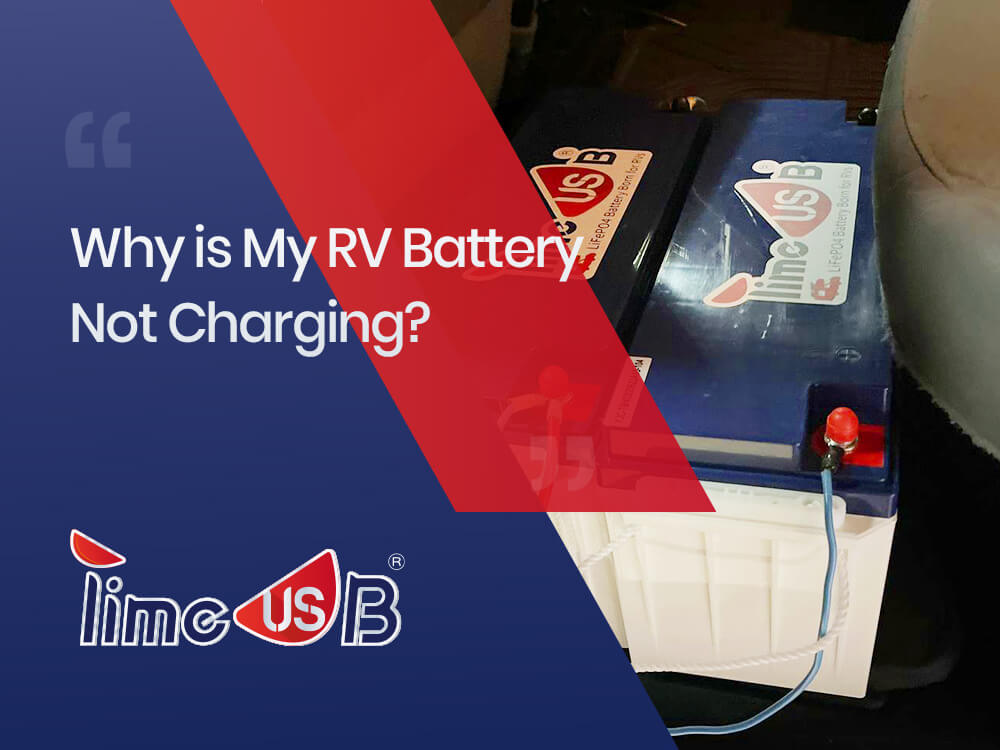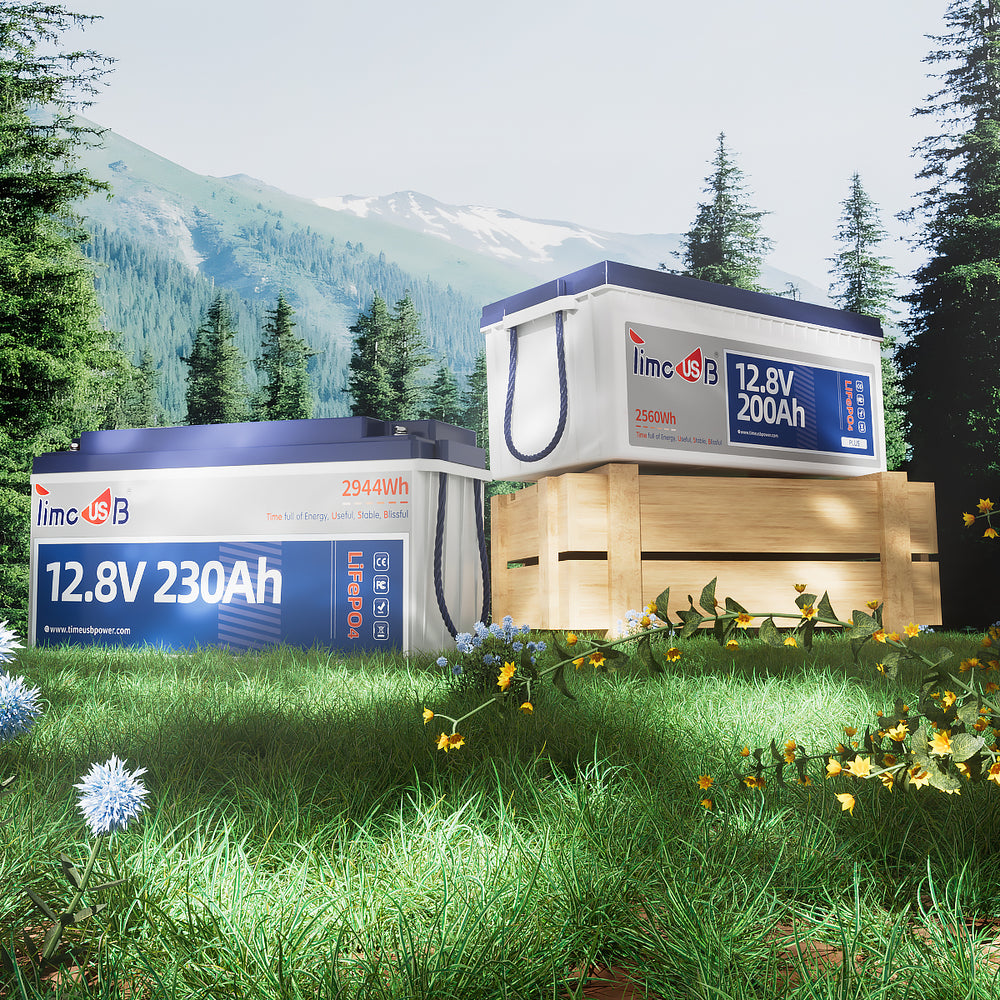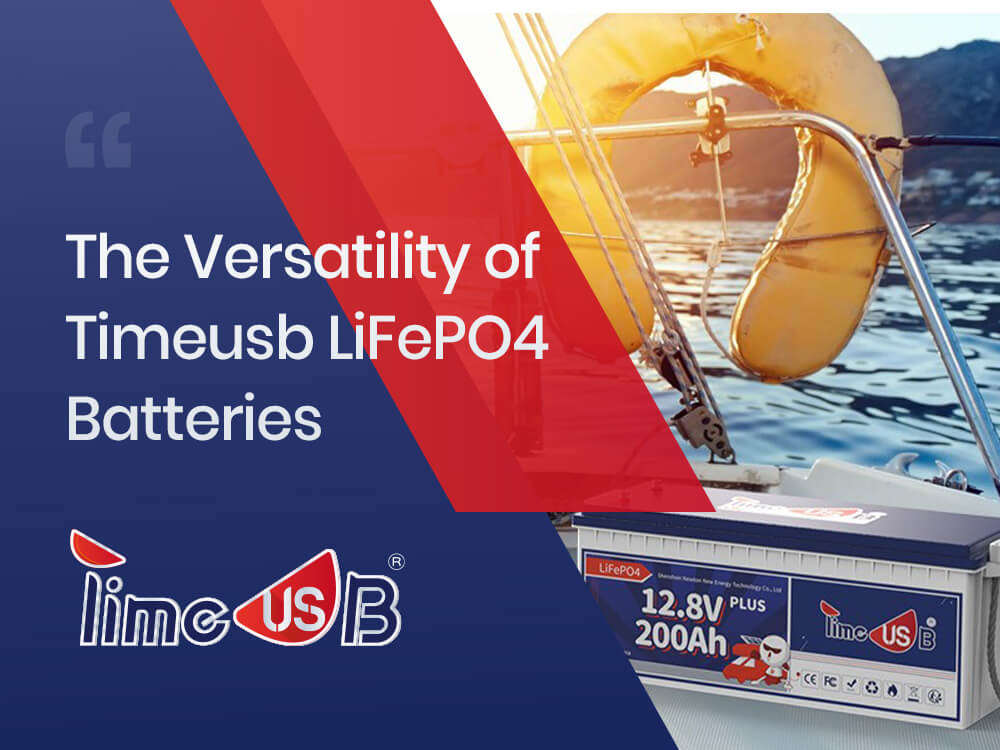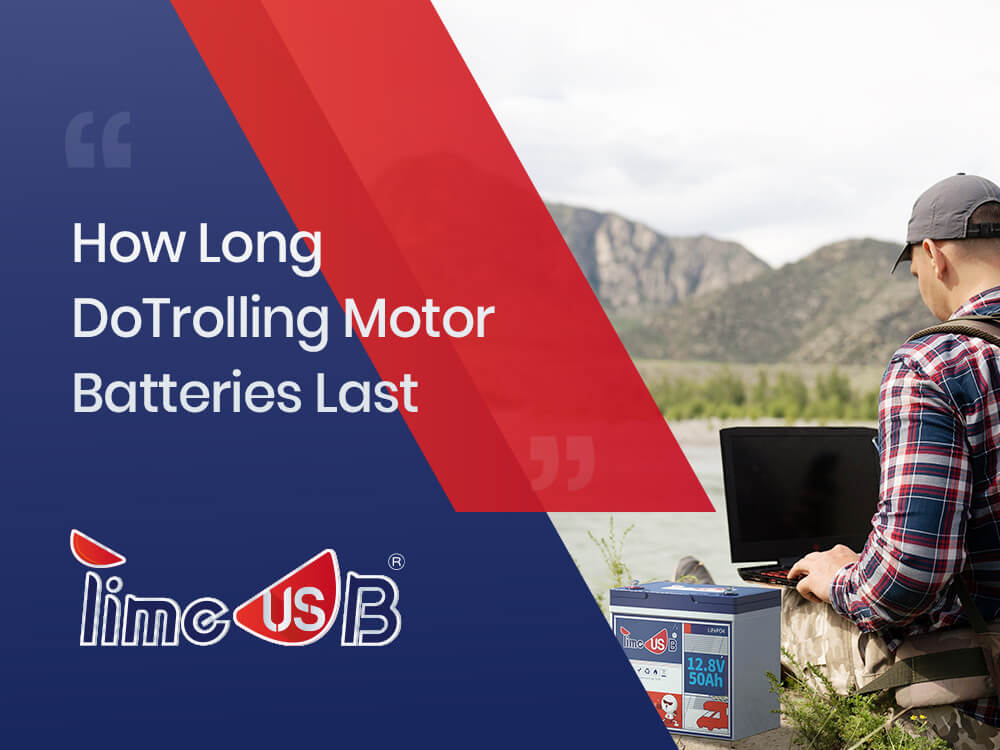Why is My RV Battery Not Charging? Issues & Solutions

When not connected to shore power, your RV batteries are responsible for powering lights and certain appliances, such as the water pump. RV electrical systems are designed to recharge the batteries when connected to shore power.
In most towable RVs, the batteries are recharged when the 7-pin connector is attached to your tow vehicle and its engine is running. Similarly, in many motorhomes, the electrical system uses the alternator to recharge the coach battery while the engine is running. Check your owner’s manual to confirm if this applies to your RV.
This is how these systems are supposed to function. But what happens when your RV battery isn't charging?
Let’s explore some common issues and troubleshooting tips to help you determine the best course of action.
Common Signs of Potential Battery Issues
RV batteries typically last between 2 to 5 years or longer, depending on factors such as battery type, depth of discharge, environmental temperature, and maintenance quality.
Lithium RV batteries are designed to be fully discharged, whereas lead-acid batteries should be kept less than 50% discharge.
A fully charged lead-acid battery should read between 12.4 and 12.8 volts when measured with a digital multimeter. If the charge drops below 11.6 volts DC, your RV’s 12-volt electrical devices will begin to malfunction. Read on Guide on Battery Voltage for more detailed information.
Different battery chemistries have varying voltage readings. For instance, lithium-ion batteries reach 14.1 volts DC, while lithium-iron phosphate batteries peak at 14.6 volts DC. These voltage differences help modern RV converters/chargers identify the type of battery in use.
Note: Not all battery chemistries are suitable for every condition, location, use, or charge rate. When considering swapping your existing RV battery for a newer one of a different chemistry, be cautious. Additional modifications to the system or placement may be necessary for safe and reliable operation.
Indicators Your Battery Isn’t Performing Properly:
- Dim or Flickering Lights: If your RV lights are dimming or flickering, it might be a sign of a failing battery.
- Slow Slide-Out Operation: Difficulty in extending or retracting slide-outs can indicate low battery power.
- Furnace Won’t Light: A failing battery might not provide enough power to ignite the furnace.
- Slow Operation of Hydraulic Stabilizing Jacks: If the jacks are operating slower than usual, the battery might be the issue.
- Constant Tripping of Circuit Breakers or Blowing Fuses: Frequent electrical issues can point to battery problems.
- Automatic Leveling Jacks Malfunction: These may lock out in fault mode or lose zero-point calibration due to insufficient battery power.
- Increased Recharge Frequency: Needing to recharge the battery more often than usual can indicate a loss of battery capacity.
By recognizing these signs, you can take proactive steps to address potential battery issues before they lead to more significant problems. Regular maintenance and timely replacement of your RV battery can ensure a smooth and trouble-free camping experience.
If your batteries have the signs that need to be replaced, upgrading to lithium deep cycle RV batteries is a great choice.
Timeusb 12V 100Ah Group 24 LiFePO4 Battery features BMS providing over-charge, over-discharge, over-current, short-circuit and high-temperature protection to ensure safety. 4000+ life-cycles can serve more than 10 years.

Common Issues and Troubleshooting Tips When RV Battery Not Charging
1. Battery Connections
- Issue: Loose or corroded battery connections can prevent your batteries from charging properly.
- Solution: Inspect the battery terminals for any signs of corrosion or looseness. Clean the terminals and ensure all connections are tight and secure.
2. Blown Fuses or Tripped Breakers
- Issue: A blown fuse or tripped breaker can disrupt the charging process.
- Solution: Check your RV’s fuse box and circuit breakers. Replace any blown fuses and reset any tripped breakers.
3. Faulty Converter or Inverter
- Issue: The converter (in towable RVs) or inverter (in motorhomes) can fail, preventing the batteries from charging.
- Solution: Test the converter or inverter to see if it’s functioning correctly. If it’s not, it may need to be repaired or replaced.
4. Alternator Problems
- Issue: In motorhomes, a faulty alternator can prevent the coach battery from charging.
- Solution: Have the alternator tested to ensure it’s working properly. If it’s defective, it will need to be replaced.
5. Battery Age and Condition
- Issue:Over time, batteries lose their ability to hold a charge.
- Solution: Test the batteries to see if they are still in good condition. If they are old or damaged, consider replacing them with new ones. Upgrade to lithium battery can enjoy longer lifespan and higher energy density.
6. Shore Power Issues
- Issue: If your RV isn’t charging when connected to shore power, the problem might be with the shore power source.
- Solution: Check the shore power pedestal for any issues. Try connecting to a different shore power source to see if the problem persists.
7. Parasitic Drains
- Issue: Some devices in your RV might be drawing power even when they appear to be off, leading to parasitic drains.
- Solution: Identify and eliminate any unnecessary power draws. Consider installing a battery disconnect switch to cut off power when the RV is not in use.
By systematically checking these common issues, you can identify and resolve the problem with your RV battery not charging. If you’re still experiencing issues, it might be time to consult a professional technician to diagnose and fix the problem.
Why Is My RV Converter Not Charging the Battery?
If your RV converter isn’t charging the battery, several issues could be causing the problem. Here are some common causes and troubleshooting tips to help you identify and resolve the issue:
Common Causes and Solutions
1. Faulty Converter
- Issue: The converter might be malfunctioning.
- Solution: Test the converter to see if it’s working correctly. If it’s not, it may need repair or replacement. You can consider integrating an MPPT solar charge controller or a DC-DC charger to supplement your charging needs.
2. Tripped Circuit Breaker or Blown Fuse
- Issue: A tripped breaker or blown fuse can interrupt the charging process.
- Solution: Check the fuse box and circuit breakers in your RV. Replace any blown fuses and reset any tripped breakers.
3. Loose or Corroded Connections
- Issue: Loose or corroded connections can prevent the battery from charging properly.
- Solution: Inspect all connections between the converter and the battery. Clean and tighten any loose or corroded connections.
4. Battery Issues
- Issue: The battery itself might be faulty or damaged.
- Solution:Test the battery to determine its condition. If it’s not holding a charge or is old, consider replacing it.
5. Incorrect Converter Settings
- Issue: The converter might not be set to the correct charge mode or voltage.
- Solution: Check the settings on the converter and ensure they match the requirements for your battery type.
6. Wiring Problems
- Issue: Damaged or incorrect wiring can affect charging.
- Solution:Inspect the wiring between the converter and the battery for any damage or incorrect connections. Repair or replace as needed.
7. Power Supply Issues
- Issue: An overload or issue with the power supply can prevent the converter from functioning.
- Solution: Ensure that your RV is connected to a stable power source. Check for any signs of overload or power supply problems.
8. Converter Age and Condition
- Issue: Older converters may not function as efficiently as newer models.
- Solution: If your converter is old or has been in use for many years, it might be time for an upgrade.
Troubleshooting Steps
Verify Power Source: Ensure your RV is properly connected to shore power and that the power source is functioning correctly.
Inspect the Converter: Look for any visible signs of damage or malfunction.
Check Battery Voltage: Measure the battery voltage to see if it’s within the expected range.
Test the Converter Output: Measure the output voltage from the converter to ensure it’s delivering the correct voltage to the battery.
Consult the Manual: Refer to your RV’s owner’s manual for specific troubleshooting steps related to your converter model.
If you’ve gone through these steps and the issue persists, it may be time to consult a professional RV technician to diagnose and resolve the problem.
Why Is My RV Battery Not Charging While Towing?
Your tow vehicle might be able to recharge your RV’s battery through the electrical connector. This is typically the case for towables and tow vehicles using a 7-pin connector with a dedicated charging wire.

Tip: If your connection uses a 4-pin connector, your setup isn’t designed to charge your RV battery while towing.
To check if your battery is charging, use a digital multimeter set to DC voltage. When connected to your tow vehicle, the battery voltage should be above 12.8 volts, indicating an incoming charge through the 7-pin connector. If the measurement is lower, it’s time to troubleshoot.
Troubleshooting Steps
1. Verify Power from Tow Vehicle
- Step 1: Start your tow vehicle.
- Step 2: Place the multimeter’s black test lead on the ground probe and the red test lead on the battery power probe of the 7-pin plug.
- Step 3: Check for voltage at the plug. If there’s no voltage, check the fuses under the hood of your tow vehicle.
2. Check for Wiring Issues
- Step 1: If you have voltage at the plug but the battery still shows less than 12.8 volts, there might be a wiring issue.
- Step 2: Look for any battery solenoids in-line that could be causing the problem.
Why Does My RV Battery Not Hold a Charge?
Over-discharging your RV battery is the most common reason it fails to hold a charge. Most RV batteries shouldn’t be depleted past 50% of their capacity before recharging. Other factors such as age, incorrect charging voltage, and improper charging methods can also impact the battery's performance.
Troubleshooting Steps
1. Check the Date Stamp
- Step 1: Look for the manufacturing date on your battery.
- Step 2: Replace batteries that are more than six years old.
2. Ensure Correct Charging Voltage and Method
- Step 1: Use a charger that matches your battery manufacturer’s voltage specifications.
- Step 2: Avoid using accessory battery chargers (such as car chargers) that don’t meet the correct specifications.
By following these troubleshooting steps, you can identify and resolve issues with your RV battery not charging while towing or not holding a charge.
Conclusion
Understanding why your RV battery isn’t charging can seem daunting, but identifying the root cause is crucial for maintaining a smooth and enjoyable camping experience. Whether your RV battery isn't charging while connected to shore power, your converter, or your tow vehicle, addressing common issues such as faulty converters, loose connections, or incorrect settings can make a significant difference.
By following the troubleshooting steps and solutions provided, you can ensure that your RV’s electrical systems function correctly, allowing you to focus on enjoying your adventures. If issues persist, consulting a professional technician may be necessary to resolve more complex problems and keep your RV running smoothly.


![[Full Guide] The Comprehensive Guide to LiFePO4 Battery Life](http://www.timeusbpower.com/cdn/shop/articles/The_Comprehensive_Guide_to_LiFePO4_Battery_Life_757d2749-9468-4739-ac83-0960c27749b0.jpg?v=1722918256&width=1080)
